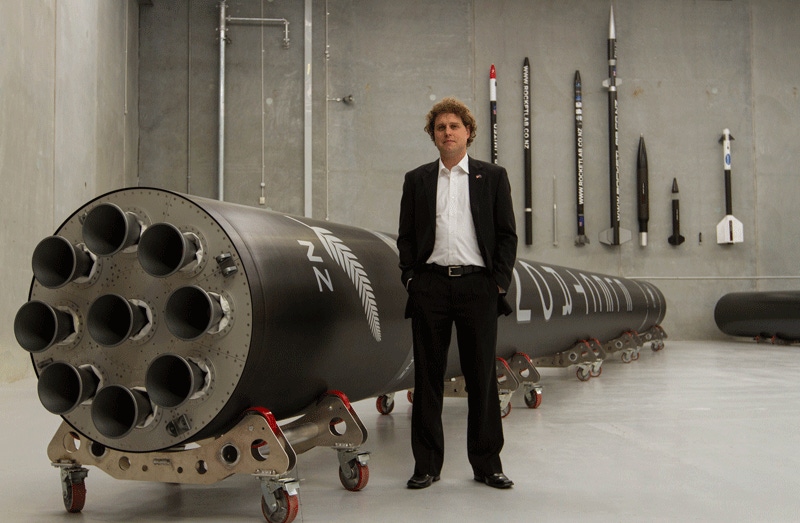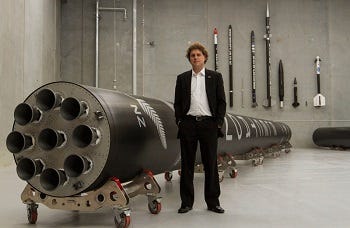July 29, 2014

US Aerospace company Rocket Lab (Los Angeles, CA) is developing a world-first launch vehicle to deliver satellites into orbit cheaper and faster than ever before. The vehicle will make extensive use of carbon composites.
Rocket Lab is building the world's first carbon composite launch vehicle at its Auckland, New Zealand facility. The development of Electron will reportedly reduce the price of delivering a satellite into orbit. At a cost of less than $5 million, this represents a drastic cost reduction compared to existing dedicated launch services. The average price of a dedicated launch service is $133 million according to Launches 2014: A Review of 2013 Launches and Payloads by The Tauri Group (Alexandria, VA).
The lead-time for businesses to launch a satellite will also reportedly be reduced from years down to weeks through vertical integration with Rocket Lab's private launch facility. Rocket Lab has already garnered strong commercial demand with commitments for its first 30 launches.
|
Rocket Lab founder and CEO Peter Beck displays Rocket Lab's accumulated expertise in carbon composite launch vehicles. Electron utilizes a complete carbon composite construction to achieve the required mass-fraction for delivering satellites into orbit. |
The key enabler for the rocket design was the use of advanced materials to make carbon composite tanks compatible with liquid oxygen and the cryogenic oxidizer employed. A low structural mass fraction is a crucial performance indicator for orbital launch vehicles. Traditionally, a low mass fraction is hard to achieve for smaller rockets in Electron's class. Designing Electron as a fully carbon-fiber vehicle has allowed the company to meet its mass fraction targets without compromising structural integrity. Unlike traditional metal flight structures, carbon composites can be designed to provide for strength and stiffness in the required directions only, so that every gram is working as hard as it can. This directly translates to larger payloads for our customers.
Electron is 18 m in length, 1 m diameter and will weigh more than 10 tons. This will reportedly be the first vehicle of its class capable of delivering payloads up to 110 kg into low earth orbits (LEO: between 160 kilometers, with an orbital period of around 88 minutes, and 2,000 kilometers, with an orbital period of around 127 minutes).
The rocket is fueled by a mix of liquid oxygen and kerosene. Its top speed is 27,500kph, with a maximum engine thrust of 146 kN (14.8 tonnes) and an engine equivalent power of 530,000 hp.
Rocket Lab CEO Peter Beck founded the company in 2007 with the vision of eliminating the commercial barriers to space. Until now, rockets have remained prohibitively large and expensive, despite the trend for satellites to become smaller, more capable and affordable. Rocket Lab says it will help to fulfill the deficit in launch systems by helping to break the cost barrier to commercial ventures and for the emerging satellite constellation markets.
"The innovation behind Electron will release the limitations on launching small satellites. Our vision at Rocket Lab is to make space commercially viable and more accessible than ever, doing what the Ford Model T did for consumer automobiles. This technology will really open space for business," said Beck.
"Along with benefits for commercial enterprises, cheaper and faster space access has the potential to lead to more accurate weather prediction, global high speed Internet access, as well as real-time monitoring of the impacts of human development," said Beck.
Rocket Lab's principal funder is top-tier Silicon Valley venture firm, Khosla Ventures, which has a long track record of backing breakthrough technologies that revolutionize industries. Vinod Khosla, founder of Khosla Ventures, says it is exciting to see to the technology and innovation coming out of Rocket Lab. "We are thrilled to be investing in the next chapter of Rocket Lab's development as they drive down the cost of launch vehicles to provide greater access to space," said Khosla. "The company's technical innovations will truly transform the space industry."
Rocket Lab is an American company with a subsidiary and head office in Auckland, New Zealand. Rocket Lab was the first private company to reach space in the southern hemisphere in 2009 with its Atea 1 suborbital sounding rocket. Following this success the company won contracts with aerospace giants Lockheed Martin, DARPA and Aeroject Rocket-dyne.
About the Author(s)
You May Also Like



